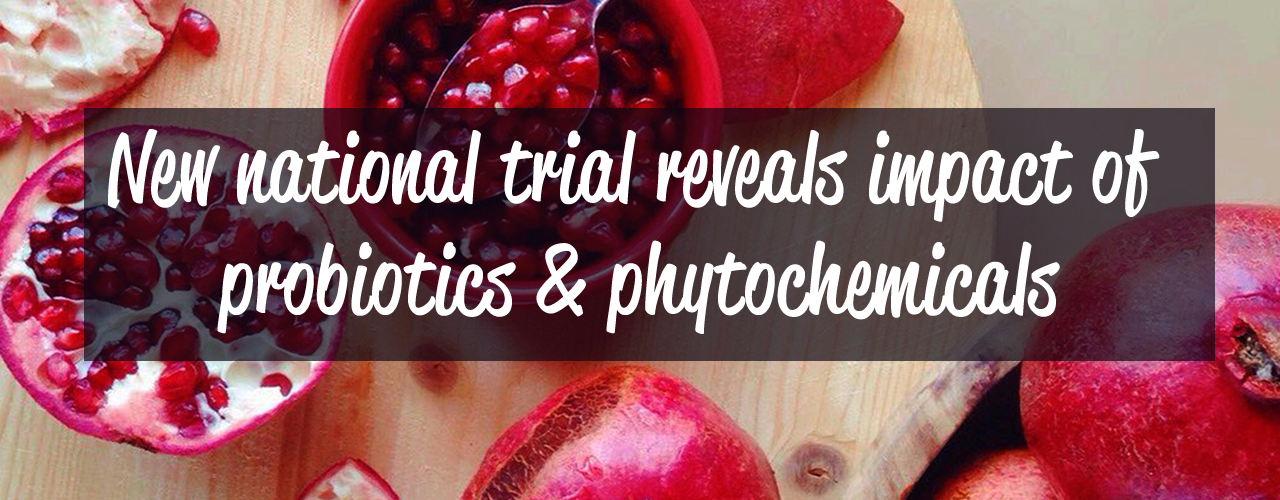New hope for prostate cancer - New UK National Trial

Video Transcript - Prof Thomas.
Lifestyle and nutritional advice to reduce the risks of chronic disease, cancer, increase mood and well being from the UK's leading Dietary and exercise Clinical Research team - lead by Professor Robert Thomas.
There's been a lot of interest recently about our gut health or more specifically the balance between the unhealthy and healthy bacteria or in other words the microbiome. It is now well established that if you have poor gut health you're more likely to have bloating indigestion you're going to feel tired not sleep very well be demotivated have a low mood. In the long term poor gut health is linked to an increased risk of viral infections such as Covid, chronic degenerative diseases such as arthritis, dementia, an increased risk of diabetes and heart attacks. It is also linked with an increased risk of cancer of the gut but also cancer elsewhere in the body including prostate cancer.
There several mechanisms of why poor gut health is linked to an increased risk of cancer. First of all you need a healthy gut to break down healthy components in Foods called phytochemicals. The phytochemicals give food its' colour its smell and its aroma and they have enormous health benefits. They reduce inflammation in the body they improve antioxidant pathways which protect our DNA and they help increase our immune surveillance.
There's also evidence that men with prostate cancer who have poor gut health are more likely to progress faster. What has not been established is if you improve the health of the gut in men with established prostate cancer that would actually slow the rate of progression and for some men that would mean they don't have to go on to have radiotherapy or surgery or hormone treatments all of which have quite considerable toxicities which will affect their daily quality of life. For these reasons it was decided in our Research Center to work with patients to design a robust prospective trial to see if we can improve diet and strategies to improve gut health and evaluate whether that could slow the rate of prostate cancer progression and at the same time improve other symptoms related to the prostate such as the water works and erectile function.
So the first thing we did is work with three patient support groups involving over 300 men with prostate cancer to see what was acceptable to them. This proved really useful because men were able to help us with the design of the study to ensure when we asked people to go into it it was acceptable to them. This resulted in over 230 men being recruited in less than 6 months and it became the fastest recruiting study in the UK. Thanks to the patient involvement there are several important lifestyle and nutritional factors which help us maintain or even improve our gut health and these include reducing processed sugar, sweeteners, stopping smoking, not drinking too, much exercising regularly but above all the two most important factors are increase in foods which contain natural healthy probiotic bacteria and increasing the intake of phytochemical rich foods.
Phytochemicals are natural substances which give food its colour taste and aroma and on top of these wonderful properties they have enormous health benefits. We know from clinical studies that population who have a higher intake of phytochemicals have a lower risk of cancer including prostate cancer and many other chronic diseases. 14 years ago we conducted a trial which boosted the intake of phytochemicals using a capsule which contain turmeric, green tea, pomegranate and broccoli and we showed it slowed prostate cancer progression. Since then there's been further evidence for other foods such as cranberry and ginger on the benefits for prostate cancer but also prostate symptoms.
For this later study involving men with established prostate cancer, the scientific committee felt it was imperative to include these two new ingredients which have also shown a benefit for clinical trials.
It's important to control and boost the intake of probiotic bacteria using a capsule, this particular capsule called YourgutPlus+ was developed specifically for our studies as it contains a good quantity of five lactobacillus probiotics combined with a good quantity of a Prebiotic inulin and vitamin D within a slow release capsule. So in other words it was picked because it has a track record of being effective and safe. Blood tests were taken before and after the intervention to ensure the supplements had no adverse effect on the body but more specifically to measure a protein called prostate specific antigen which is a marker of the volume of disease within the body. You can see in this particular case (see video clip) since the intervention, the PSA went down which is actually a surrogate marker of a response to the supplements. As in this man, patients were asked to fill out questionnaires about their urinary symptoms such as how often they get up at night and the quality of their erections. For strength we used a grip strength monitor now grip strength is actually an interesting end point in this trial because it does correlate with overall well-being. To assess tumour size men underwent an MRI scan before and after the intervention in that way we're able to measure the actual lesion and see if there was any progression regression or stabilization. In that way can we can ensure that the PSA changes actually correlated with underlying disease.
Now the trial has finished the data has been collected by the independent Auditors and sent to the statistician we will know the final results of the trial when it's presented in the world's largest Urological conference called ASCO Urology in February 2025. In California there was an analysis presented in the British site of Lifestyle medicine conference which did already show some significant slowing of the PSA Improvement of water works and erectile function. Certainly a lot of the men who are on the older supplement {Pomi-T} who changed to this new one {YourPhyto} had a further reduction in their PSA which is very reassuring.
In the meantime this trial is clearly shown that it's appropriate for men with prostate cancer to increase their intake of healthy phytochemical rich foods.
It would also be very sensible to adopt strategies to improve their gut health.

